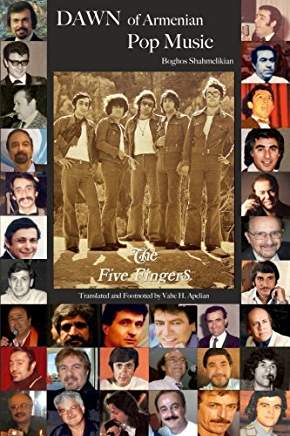“They Were, (and) are no more” (Կային, Չկան) is the title of the last chapter of Antranig Zarougian’s “The Greats and the Others” (Մեծերը եւ Միւսները) book where he casts a glimpse of the way Diaspora writers related to each other, as poets, novelists, journalists, and editors and in doing so propelled the post genocide Western Armenian literature to new heights that subsided with their passing away. The attached is my abridged translated segment from that chapter. Vahe H. Apelian
 |
| Aramazd |
“After Paris I went to Marseille just and only just to visit Avedis Aharonian1, whom Zabel Yessaian had likened to the Armenian pagan mythical god Aramazd2. He was bedridden for over a decade, due to a stroke, lying in bed immobile and unspeaking. All those who had heard him speak, vouched that he was regarded the most eloquent orator. But the wizard of the words could no more utter a single sentence. It was a gross tragedy.
It was a bright and a sunny day, in an upscale neighborhood, Hagop Babigian and I were heading to visit him. A considerate Armenian family, a husband and a wife, had vacated the upper floor of their beautiful villa and made room for the care of Aharonian, as they moved downstairs.
Right after receiving us, Mrs. Aharonian advised us not to enter his room to see him. Had I been by myself I would have most likely heeded to her advice and not entered his room. But Hagop Babigian was with me as his guardian. He insisted visiting him and thus we entered in.
A big bald head was resting over a white pillow, and on it two sparkling eyes, that is all to it, much like a dry clay jar the middle of which were two shiny lights. Mrs. Aharonian approached him shouting loud to his ear said:
- “Dear Avo, he is one of our ungers (comrades) from Syria, the poet….”
Suddenly the lights extinguished from his eyes, and I heard a voice as if coming from a deep grave:
- “No, no, no…..”
Three times “no”. It is the only word he can utter and that one word is the whole lexicon for someone who was the king of the spoken words, the mythical god Aramazd of the Armenian literature. Do you have pain? No! Do you need anything? No!, and nothing else. A ravished body, but a sharp mind, and a single word, “no”, that is all to it. My God, I thought, what a miserable luck had been in store for him, what a disaster!
- “Did I not tell you not to enter?” Gently reprimanded me Mrs. Aharonian at the same time caringly caressing my shoulder.
I almost fled the scene feeling guilty. The whole visit had hardly lasted ten minutes. I was in a shock. Babigian who was more familiar with the situation was not affected. When we were in the street, he said:
- “ I think you need a strong drink to get you out of this state.” We entered a pub.
No less memorable was Avedis Aharonian’s wife. She was tall, graceful much like a palm tree, but emaciated and worn out, but beautiful in spite of her septuagenarian age. She was the sister of Mikayel Varandian3. In her youth, there wasn’t a young man who did not pursue her, like bees buzzing around her. Among them were two Avos – Avedis Aharonian and Avedik Isahagian3. Hagop Babigian, who had been close to Mikael Varantian, remembered her brother telling him that it’s only one of the two who could hold the rein of our stallion.
The “Black Stallion” of the past had been transformed into a care giver for the past fifteen years. Not a single day had she left her critically wounded Aramazd. Every day, twice a day, she would change his body posture in the bed with the help of a care giver or on her own, and take care of him, change the linens, wash them and then wait on him. She had been doing this daily for the past fifteen years. There still are people who look for saints in the Bible.
They were, are no more.
Notes:
1. Avetis Aharonian (Աւետիս ԱհարոնեանՕ, January 9, 1866, Iğdır, Turkey - March 20, 1948, Paris, France. He was an Armenian politician, writer, public figure and revolutionary, also part of the Armenian national movement. In 1919, he was the head the Armenian delegation at the Paris Peace Conference with Boghos Nubar, where he signed the Treaty of Sèvres formulating the "Wilsonian Armenia" in direct collaboration with the Armenian Diaspora. (Wikipedia)
2. Aramazd was the chief and creator god in pre-Christian Armenian mythology. The deity and his name were derived from the Zoroastrian deity Ahura Mazda after the Median conquest of Armenia in the 6th century BCE. (Wikipedia)
3. Mikayel Varandian (Միքայել Վարանդյան). 1870 Shushi – April 27, 1934, Marseille, France. He was an Armenian historian and the main theoretician of the Armenian Revolutionary Federation. Varandian was born Mikayel Hovhannisian in the village of Kyatuk in the Varanda canton of the region of Karabakh. He took the penname Varandian in honor of his home province. (Wikipedia)
4. Avetik Isahakyan (Armenian: Ավետիք Իսահակյան; October 30, 1875 – Gyumri, Armenia - October 17, 1957, Yerevan, Armenia. He was a prominent Armenian lyric poet, writer and public activist.









